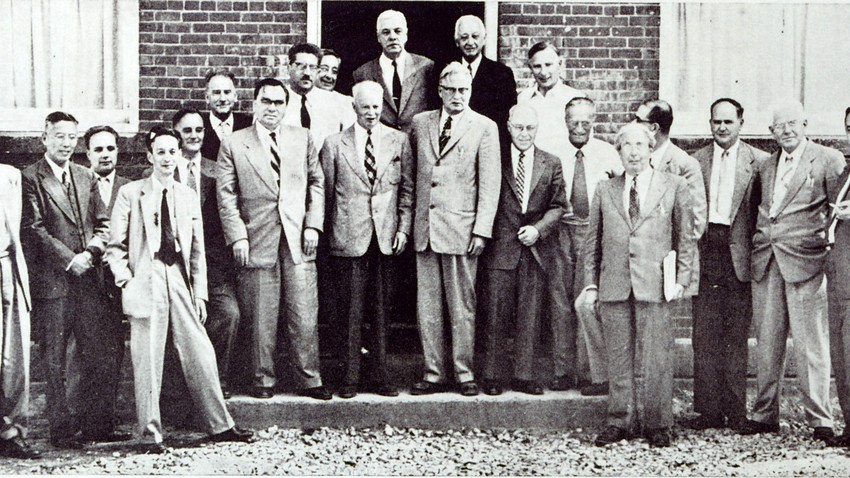
"THE PUGWASH FACTOR"
Ever heard of Pugwash? I hadn’t either, until we ended up there this summer after a very long northeasterly drive from Berrien Springs (1500+ miles). Turns out Pugwash is a small town in Nova Scotia, on the far eastern side of Canada and perched on the red clay shores of the Northumberland Strait. Its more famous neighbor across the strait is Prince Edward Island, the home of the fabled “Anne of Green Gables” (that’s “Anne with an e”)—Lucy Maud Montgomery’s heart-tugging story of a spunky red-headed orphan who for a century now has captured the hearts of women young and old (and, not a few men as well). After spending a few days on that beautiful island province, Karen and I drove to Pugwash for the Maritime Conference camp meeting at their picturesque summer camp along the strait. The old timers told us about the time the evangelist Ron Halvorsen visited that camp meeting. Asked at the Canadian border where he was headed, he replied, “Hogwash, Nova Scotia” (an unfortunate turn of a word!).
But what really put the obscure village of Pugwash on the global map was a series of conversations by the world’s scientific community in the early 1950s. The horrific nuclear destruction—unleashed by the twin atomic bombs that obliterated the Japanese cites of Hiroshima and Nagasaki and hastened the end to World War II in August, 1945—raised a deeply troubling angst among thinkers in both the West and East. Was human civilization poised on the brink of nuclear self-annihilation? What guarantees could governments provide to contain nuclear proliferation? Knowing what they now knew, should this community of thinkers remain silent in the face of the end?
Three days before his death on April 18, 1955, American scientist Albert Einstein joined British philosopher Bertrand Russell in signing the Russell-Einstein Manifesto: “The prospect for the human race is sombre beyond all precedent. Mankind are faced with a clear-cut alternative: either we shall all perish, or we shall have to acquire some slight degree of common sense. A great deal of new political thinking will be necessary if utter disaster is to be averted.” (https://en.wikipedia.org/wiki/Russell%E2%80%93Einstein_Manifesto)
Two years later in July, 1957, at the village of Pugwash 22 scientists, including ten Nobel Laureates, gathered to ponder how to avert the Cold War’s threat of nuclear obliteration and forge a plan for global peace. But more than a half century later peace is still illusive. And the Pugwash Conferences continue.
Given the escalating turmoil of this age, how shall the followers of Christ live? Knowing what they know about the future and His return, how should they communicate to their world? What should they say? Should this community of thinkers remain silent in the face of the end?
Call it the “Pugwash Factor”*—a series of reflections this fall at Andrews University’s Pioneer Memorial Church, Saturday mornings. Because if those who know do not act or speak up, the planet is doomed.
*For a list of “The Pugwash Factor” titles/subjects and dates see the back cover of the August 29 worship bulletin.